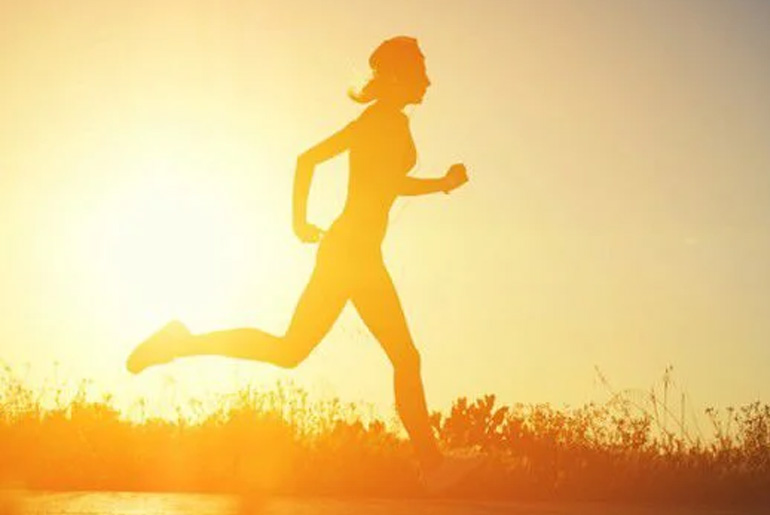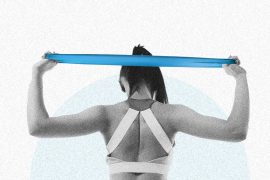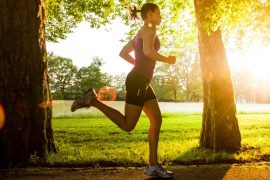The summer’s high temperatures present a challenge for fitness enthusiasts, balancing the benefits of staying active with the risks of overheating. While maintaining physical activity is essential for overall health, especially in warmer weather, pushing oneself too hard in the heat can result in illness and heat-related conditions. To mitigate these risks, it’s crucial to take precautions such as staying hydrated, wearing appropriate clothing, and scheduling workouts during cooler times of the day.
Additionally, listening to one’s body and adjusting workout intensity as needed is vital for avoiding heat-related illnesses. By being mindful of these risks and taking necessary precautions, fitness enthusiasts can continue to prioritize their health and well-being while staying active during the summer months.
Potential health risks:
Overexertion in hot conditions can pose significant health risks, especially during physical activities or exercise. Here are some of the potential health risks associated with overexertion in the heat:
- Heat Exhaustion: Overexertion in hot weather can lead to heat exhaustion, which occurs when the body overheats and is unable to cool itself down efficiently. Symptoms may include heavy sweating, weakness, dizziness, nausea, headache, and rapid heartbeat. If not promptly treated, heat exhaustion can progress to heat stroke.
- Heat Stroke: Heat stroke is a severe and life-threatening condition that occurs when the body’s temperature regulation system fails, causing body temperature to rise rapidly. Symptoms of heat stroke include a high body temperature (usually above 104°F or 40°C), altered mental state, confusion, loss of consciousness, rapid and shallow breathing, and seizures. Heat stroke requires immediate medical attention and can be fatal if not treated promptly.
- Dehydration: Overexertion in the heat can lead to excessive sweating and fluid loss, increasing the risk of dehydration. Dehydration occurs when the body loses more fluids than it takes in, leading to symptoms such as thirst, dry mouth, dark urine, fatigue, dizziness, and confusion. Severe dehydration can lead to electrolyte imbalances and heat-related illnesses.
- Electrolyte Imbalance: Sweating during physical activity in hot conditions not only results in fluid loss but also causes the loss of essential electrolytes such as sodium, potassium, and chloride. Electrolytes are crucial for maintaining fluid balance, nerve function, and muscle contractions. An imbalance in electrolytes can lead to muscle cramps, weakness, confusion, and even cardiac abnormalities.
- Exacerbation of Underlying Health Conditions: Overexertion in the heat can exacerbate underlying health conditions such as cardiovascular diseases, respiratory diseases, and diabetes. Hot weather places additional strain on the heart and lungs, increasing the risk of heart attacks, asthma attacks, and diabetic complications.
- Sunburn and Sun-related Skin Damage: Prolonged exposure to the sun during outdoor activities in hot weather can lead to sunburn and skin damage. Sunburn is characterized by redness, pain, and blistering of the skin and increases the risk of skin cancer in the long term. Protecting the skin with sunscreen, protective clothing, and seeking shade can help prevent sunburn and sun-related skin damage.
To minimize the risks of overexertion in hot conditions, it’s essential to stay hydrated, take frequent breaks in shaded or cool areas, wear lightweight and breathable clothing, avoid strenuous activity during the hottest parts of the day, and listen to your body’s signals of fatigue or overheating. If you or someone else experiences symptoms of heat-related illness, seek medical attention immediately.
Tips for exercising smartly in hot weather:
Exercising in the summer sun requires smart strategies to ensure you stay active and healthy while avoiding the risks of heat-related illnesses. Here are some tips for exercising smartly in hot weather:
- Shorter, Moderated Workouts: Opt for shorter exercise sessions lasting around 30-45 minutes, especially if you’re working out outdoors. This helps manage your body temperature and reduces the risk of dehydration. Listen to your body and take breaks as needed to rest and cool down.
- Embrace the Early Bird: Schedule your workouts for the cooler morning hours when the sun’s intensity is lower. Exercising early in the day allows your body to regulate its temperature more efficiently and reduces the risk of overheating. Plus, you’ll enjoy the peacefulness of the morning and kickstart your day with a burst of energy.
- Hydration is Key: Stay well-hydrated before, during, and after your workout. Drink plenty of water to replace fluids lost through sweat and prevent dehydration. Consider carrying a water bottle with you during your workout and take sips regularly, even if you don’t feel thirsty.
- Choose Your Exercises Wisely: Opt for isotonic exercises that promote cardiovascular health while keeping you cool with moderate exertion. Activities like brisk walking, jogging, swimming, cycling, or skipping rope are excellent choices for summer workouts. These exercises allow you to maintain a steady heart rate and engage multiple muscle groups without overheating.
- Leave the Powerlifting for Later: While weight training is important for strength and muscle building, intense activities like heavy lifting or excessive push-ups can generate significant body heat. Limit these activities in the summer months to avoid dehydration and heat-related illnesses. Instead, focus on lighter resistance training or save intense workouts for cooler times of the day.
By following these tips and prioritizing safety, you can continue your fitness journey even during the hot summer months. Remember to listen to your body, stay hydrated, exercise smartly, and enjoy the rewards of staying active while soaking up the sun responsibly.
Disclaimer:
The information contained in this article is for educational and informational purposes only and is not intended as a health advice. We would ask you to consult a qualified professional or medical expert to gain additional knowledge before you choose to consume any product or perform any exercise.







